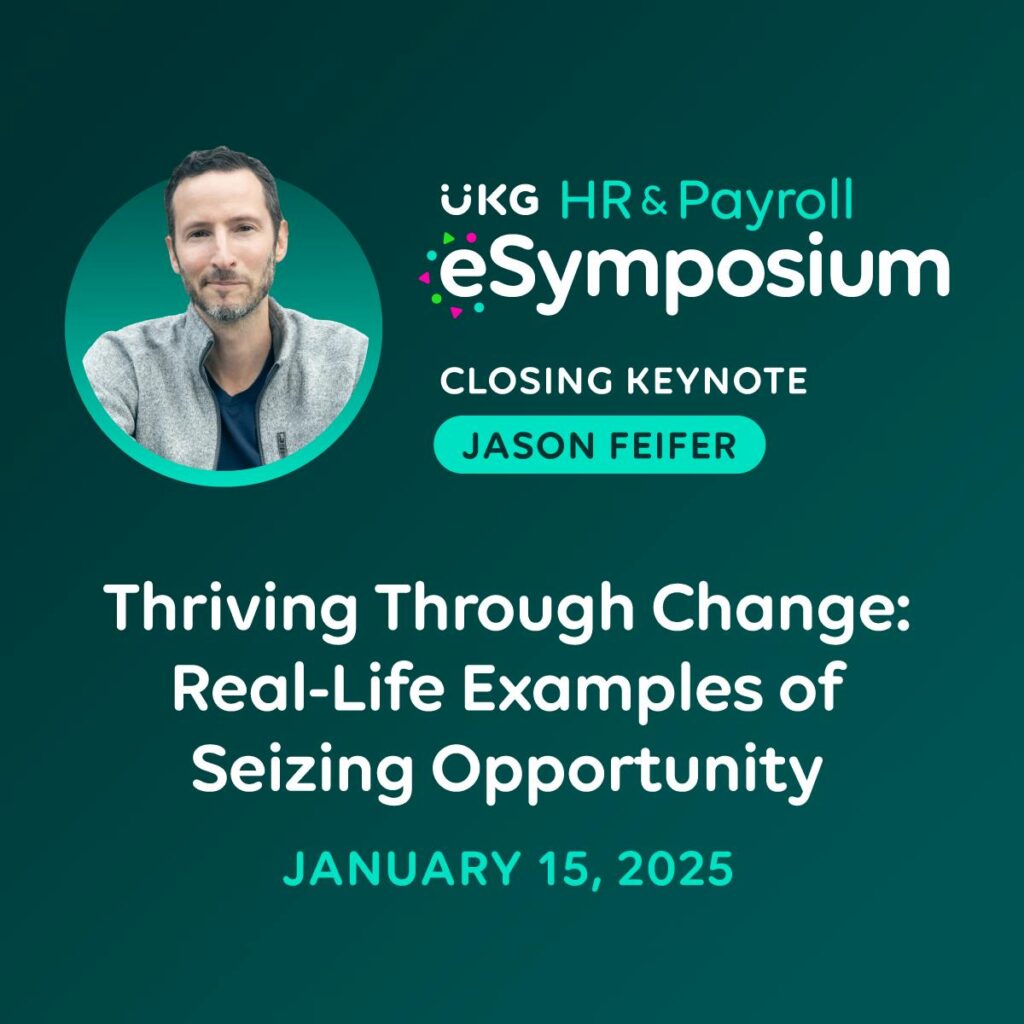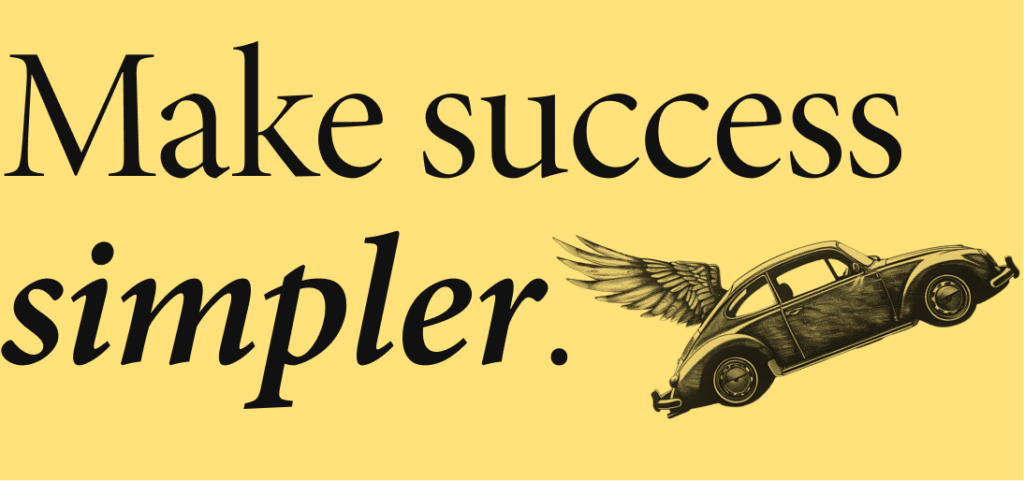Welcome to One Thing Better. Each week, the editor in chief of Entrepreneur magazine (that’s me) shares one way to be happier and more effective at work — and build a career or company you love.
Today’s edition is sponsored by UKG’s HR & Payroll eSymposium — where you can watch ME for FREE! Details at the end of the newsletter.

You want to end something. But you’re not sure how to tell people.
Today, I’ll show you how.
This is a follow-up to last week’s newsletter, where I wrote about the power of ending things. I explained that I just ended a community that I created, which meant telling 160 people that it was over.
A reader named Rachel emailed me to ask:
“As someone who procrastinates on ending things because I hate disappointing people, the prospect of writing emails or announcing endings often stops me from taking any action at all. How did you write your email to your community? Would love to see, and formulate strategies for ending things on a good note!”
Great idea, Rachel!
Today, I’ll teach that by sharing two endings:
- The time I was fired. It taught me a lot about how to end things well.
- How I ended my community. I’ll share the email I sent.
Here we go.
First, about that time I was fired…
This happened about a decade ago. I was a mid-level editor at another national magazine. One day, my manager sent a brief email asking if I had a minute.
I walked into his office assuming we’d talk about some project.
He motioned for me to sit down. Then he said his first words: “We’re going to let you go.”
I was surprised. He kept talking, calmly and straightforwardly. He explained the problem — they have a small staff, and I wasn’t carrying enough weight. I’m clearly very smart and talented, he said, but my ideas are better suited elsewhere.
He was warm as he said this. Not stern. Not defensive. Not accusatory. The message was: “You’re great, just not here.”
Honestly, two things went through my mind as he said all this:
- He’s right. I was not a fit at that magazine.
- He’s very good at firing people. When I need to do this, I’m following his model.
He told me what would happen next. He asked if I had questions. He offered to be a reference in the future. He was patient. Understanding. I left in a daze, but not angry or insulted. I got it.
Here’s the formula for ending things
I’ve thought about that moment a lot. As I see it, my manager followed a four-part formula:
Part 1: Be straightforward from the start. No awkwardness or suspenseful lead-up. State the most important information first.
Part 2: Explain your reasoning. People deserve an explanation. Even if they disagree, they should at least understood your perspective.
Part 3: Respect without pandering. Be kind, be appreciative, and be complimentary where appropriate — so long as it’s honest and true, and does not invite confusion or complexity.
Part 4: Explain what happens next. When something ends, people feel disoriented. They need to know the plan. Give it without prompting.
This is an excellent formula, and I have followed it ever since — because this formula can apply to any endings, not just firings. In fact, it’s also how I just ended my community.
Rachel asked to see the email I sent. Here it is.
How I ended my community
The formula begins with: Be straightforward from the start.
When I send big or important emails, I often like to summarize the major points at the top — almost like a table of contents. This way, people get all the important information first. There’s no disorientation or suspense. Nobody’s scanning through a dense email, looking for answers.
So here’s how I began the community email:
Hey OTB Community,
I have some news. I’ll tell you the highlights first, then explain.
1. I’m going to end this community.
2. We’ll have a final call on Dec 18 at 5 ET.
3. This doesn’t have to be farewell — I’m building something new, to be coming probably Q2 next year.
4. I’m working on figuring out refunds for annual memberships.
OK, time to explain.
Next, I wanted to honor the group and its members. So I moved into the next phase: Respect without pandering. Technically, this is Phase 3 of the formula, but it felt right in this place. Modify the formula as needed!
I wrote:
First of all, thank you immensely. When I first launched this thing last November, Rawi, who became one of the most active members here, emailed me to basically say, “Hey, I’m taking a bet on you.” I loved that framing, and thought about it throughout this project. This community was somewhat abstract, and the offer kept changing, and sticking around meant taking a bet on me.
The experience was incredible. I’ve gotten to know so many amazing people, and I know many of you have connected and collaborated with each other. What a gift. Please let that continue — you can reach out to me anytime, for example, and I hope you’ll continue to connect with each other. I’ll keep the LinkedIn group live, if only so that it helps you find each other.
Why is this called “respect without pandering”? Because it can’t feel empty or obligatory. I’m not overstating its importance, or saying that I regret ending it, or that I’ll miss everyone terribly, or doing anything that people could question my genuineness. Pandering undercuts everything.
My message was caring and clear. In effect, I’m saying: I feel what you feel. I liked it too.
Then I moved into the next phase: Explain your reasoning.
Here’s how my email continued:
So, why close the OTB community?
Well, I’ll pull back the curtain. I’ve mentioned before that I’m overcommitted. Here’s what I juggle every week:
[Then I listed a very long list of my commitments; I’ll spare you all the details, but in the group, I’d established an unvarnished guts-and-all style of sharing, so wanted to carry that through here.]
Frankly, it’s too much. I tend to start work at 7:30 am and then go nonstop until 6 or 6:30 pm, when I take a break for family, and then often catch up on a few more things around 10 pm or so. I’ve been pushing myself to step away more — take walks, have coffee with friends, etc — and I do accomplish this sometimes! But not enough.
And then…
Then I shared a version of what I ended up writing in last week’s newsletter — about the advice I got from an Amazon executive, about how a new project came online for me, and that I needed to make space for it.
I wrote that my community was “something I love, but that I’ve never quite figured out how to exponentially scale, and that isn’t financially viable at the scale it currently exists at. It’s one of those joyful, beloved, almost-there projects.”
Then it was time for the final phase: Explain what happens next. I gave details about our final call, and the refunds I’ll be issuing. The email was 1,300 words long, which is a little shorter than this newsletter today.
It hit send. Many people replied graciously. And then life moved on.
Endings are not always so clean
Some endings can be done by email. Some should be done in person, or at least the phone. I’m not saying it’s easy. There are break-ups. Firings. Endings of long-standing agreements. There could be tears or protest. People’s feelings are uncontrollable — but that’s OK. Their feelings are theirs. They are free to feel as they please.
But I assure you: The hardest part is always right before. It’s the moments before a final conversation, or the seconds before you hit send on the email. Then it’s done. And everyone gets to move on.
At the start of this, OTB reader Rachel admitted: “As someone who procrastinates on ending things because I hate disappointing people, the prospect of writing emails or announcing endings often stops me from taking any action at all.”
Rachel, I totally sympathize — but here’s another way to think about it: Disappointment is inevitable. If something isn’t working, then it will start to degrade, and the people who rely upon it will be disappointed no matter what.
So here is your choice: Will they be disappointed because you’ve become distant and unavailable, and because the relationship has gone sour, and because the product has suffered?
Or will they be disappointed because they heard something they didn’t want to hear, delivered to them with clarity, grace, and respect?
There’s only one choice, really.
That’s how to do one thing better.
Watch my free keynote in January!

Work is changing. Are you ready to thrive?
Watch my FREE virtual keynote at UKG’s HR & Payroll eSymposium. I share an uplifting and insightful talk, full of insights from the world’s top entrepreneurs and leaders. Learn how to grow in times of change, overcome the toughest challenges, spot new opportunities, and create meaningful work.
I’m part of an amazing lineup of speakers — aimed at HR and payroll specialists, but useful to everyone!
Register Now to equip yourself with the knowledge, tools, and credits needed to excel in your role and lead your organization to greatness. From understanding the complexities of compliance and payroll to leveraging HR data for informed decision-making ― this event has you covered!
*sponsored
